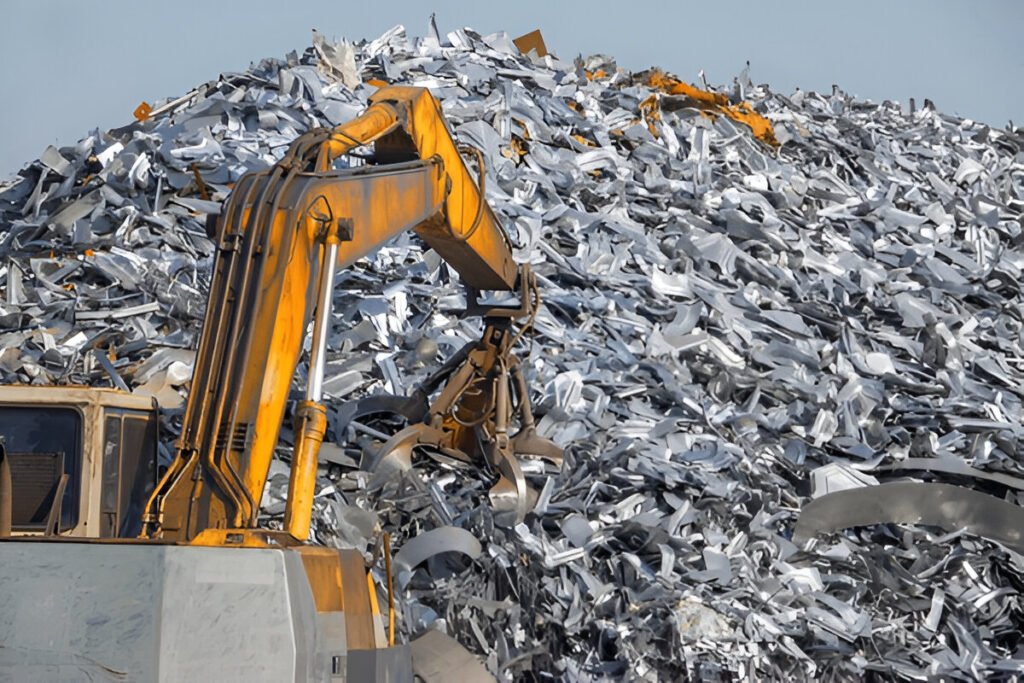When your industrial equipment reaches the end of its operational life, it doesn’t mean it’s worthless. In fact, the Scrap Metal Industry thrives on such retired machines, converting them into valuable raw material. Whether it’s an outdated transformer, a worn-out turbine, or heavy machinery, understanding how to estimate its scrap value can help you make smart, profitable decisions.
In this guide, we’ll break down how to assess the scrap worth of your equipment and get the best deal possible in the Scrap Metal Industry.
Why the Scrap Metal Industry Values Industrial Equipment
The Scrap Metal Industry recycles metals like copper, aluminum, and steel found in industrial equipment. These materials can be melted and reused in manufacturing. Companies involved in industrial recycling actively seek old machinery due to the high-quality metal it often contains.
Unlike household junk, industrial assets have more structured components—motors, transformers, frames, and wires—each with salvageable metals.
Step 1: Identify the Equipment Materials
Your first step is knowing what your equipment is made of. Different metals have different market prices. For example:
- Copper: Found in wiring and motors. Highly valuable.
- Steel: Heavy, strong, and recyclable—used in frames and bodies.
- Aluminum: Lightweight and found in casing or engines.
- Brass: Common in valves and fittings.
If your equipment contains any of these, you’re likely holding valuable scrap. Companies specializing in industrial scrap metal often have scales and testing tools to determine metal composition instantly.
Step 2: Remove Non-Metal Attachments
Scrap yards pay based on weight and purity. Anything non-metal—rubber, plastic, or wood—will be considered “contamination.” By removing these, you increase the equipment’s scrap value.
This step is also where professionals in scrap wire or industrial equipment recycling come in handy, offering disassembly services that maximize metal recovery.
Step 3: Check Market Rates
Scrap metal prices fluctuate daily based on global demand and local supply. Before making a deal:
- Visit online scrap pricing indexes.
- Call local yards.
- Consult companies listed as scrap equipment buyers.
Having updated pricing knowledge ensures you’re not underpaid for your material.
Step 4: Weigh the Equipment
Once disassembled and cleaned, weigh the metal parts. Multiply the weight (usually in pounds or kilograms) by the current market price of that specific metal.
Example:
If your industrial motor has 100 lbs of copper and the current rate is $3.50/lb, you’re looking at $350—just for the copper.
But remember, not all parts will be pure metal. That’s why experts in the Scrap Metal Industry use precise tools to separate and grade materials before pricing.
Step 5: Consider Selling to Specialized Buyers
Instead of going to a generic yard, sell directly to buyers specializing in your type of scrap. For example:
- Transformers? Contact transformer dismantling services.
- Power plant parts? Go to industrial dismantling pros.
- Mixed equipment? Reach out to scrap recycling industries.
These specialized buyers typically offer higher rates because they understand the true value of what you’re selling.
Step 6: Include Transportation Costs
Heavy equipment is, well, heavy. If you’re hauling it yourself, include fuel, labor, and potential permit costs. Some companies in the Scrap Metal Industry offer free pick-up for large volumes—saving you hundreds in logistics.
Always ask:
- Who pays for transport?
- Is the weight verified on-site or after delivery?
Step 7: Get Multiple Quotes
Never settle on the first offer. The Scrap Metal Industry is competitive, especially with rising demand for metals in manufacturing and renewable energy. Reach out to at least 3–4 buyers and compare their offers. Some may even negotiate, especially if you have a large or high-quality lot.
Final Thoughts: Your Scrap is Valuable
The scrap value of your industrial equipment isn’t just about metal—it’s about knowledge. By identifying what you have, understanding the market, and choosing the right industrial scrap partners, you can turn old machinery into real money.
Don’t let rust fool you—your scrap could be tomorrow’s profit.



